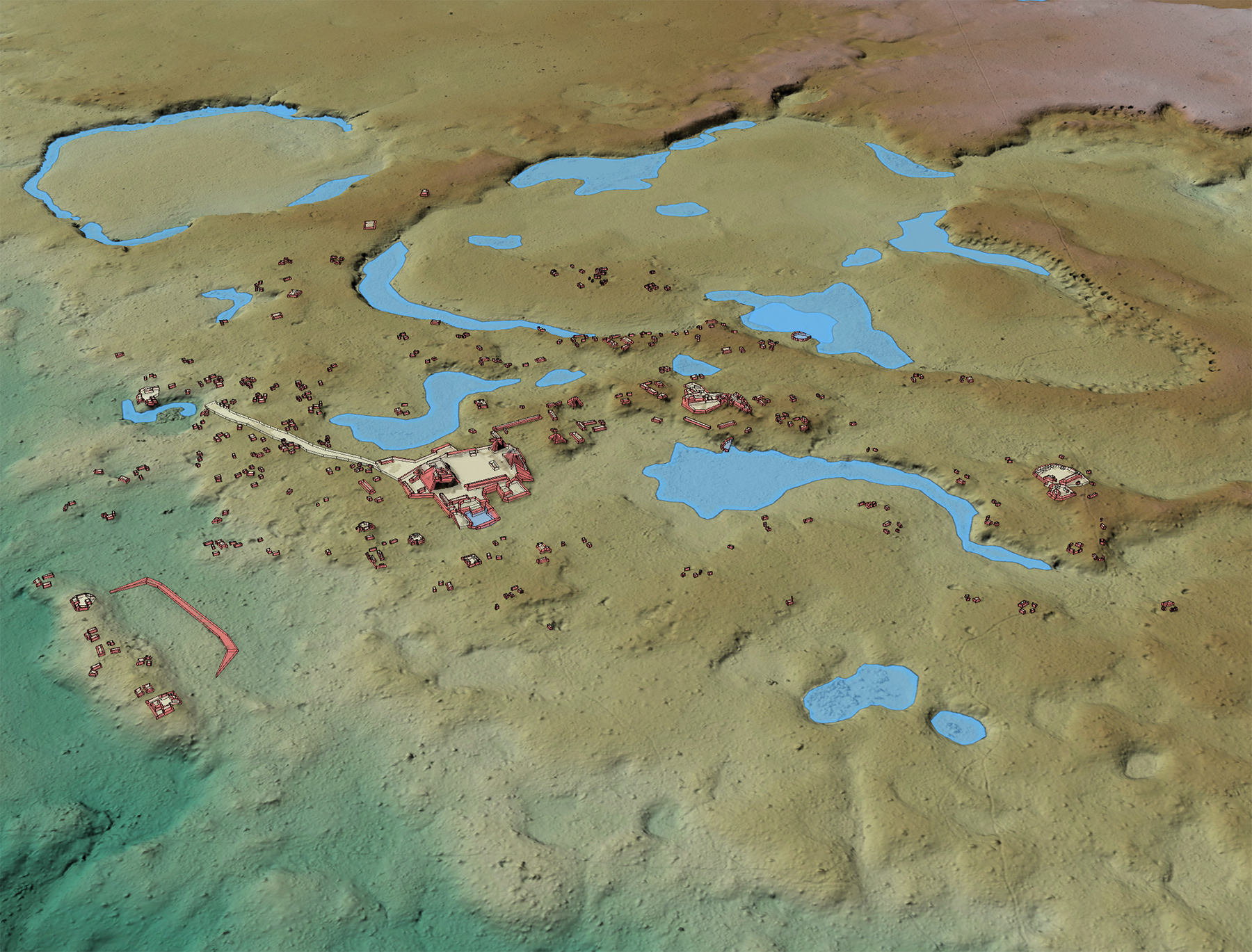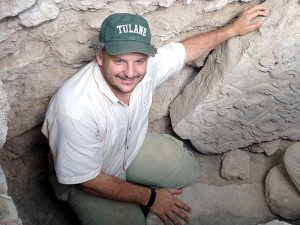
- This event has passed.
MARI Presents “Beyond the Beautiful Map: Toward Large-Scale Modeling and Community-Engaged Settlement Pattern Research”
Fri, March 8th at 6:00 PM - 8:00 PM

In celebration of the centennial of the Middle American Research Institute (MARI), director Dr. Marcello A. Canuto gives a lecture in NOMA’s Lapis Center for the Arts: “Beyond the Beautiful Map: Toward Large-Scale Modeling and Community-engaged Settlement Pattern Research.”
Please register in advance to guarantee a seat. Free and open to the public.
About the Lecture
Despite the long-standing interest in Maya settlement patterns in archaeology, the tropical forest has imposed practical and methodological constraints that have led academics toward local-scale analysis. Ambitious efforts to scale up local models using remote sensing have been continually thwarted by the regionalism and heterogeneity of the Maya Forest.
The use of airborne laser scanning (lidar) as a direct-discovery technique, capable of mapping enormous areas in minute detail, has given the discipline’s macro-scale objectives new life. Lidar provides new approaches to reconstruct Maya settlement patterns at previously unreachable scales by simultaneously recording topography, archaeological settlement, anthropogenic landscape modification, and vegetation.
Here, we use lidar-derived settlement and topographic data to develop a settlement suitability model that identifies constraints on settlement patterning and historical contingencies in the growth of individual cities. We also demonstrate how this approach might give significant information for local modern communities to better manage and steward the natural and cultural resources of locations where the Maya Forest still exists.
About Marcello A. Canuto
Marcello A. Canuto is currently the Director of the Middle American Research Institute and Professor of Anthropology at Tulane University. He received his BA from Harvard University in 1991 and his PhD from the University of Pennsylvania in 2002. Before coming to Tulane in 2009, he was an Assistant Professor at Yale University.
He has undertaken archaeological excavations in the Maya region, South America, India, North Africa, and the northeast US. His primary research interest in the Maya area has been on the integrative mechanisms that the ancient Maya used to build and maintain a socio-politically complex society throughout both the Preclassic and Classic periods. More broadly, his interests include household and community dynamics, the development of socio-political complexity in ancient societies, the definition of identity through material culture, and the modern social contexts of archaeology in Mesoamerica. His past research in Honduras investigated the nature of ethnic diversity at Copan.
He now co-directs a project in the understudied Northwest Peten, Guatemala where he investigates the construction of social categories and the mechanisms by which complex socio-political organizations develop and were maintained.
About the Middle American Research Institute
Founded in 1924, the Middle American Research Institute (MARI) at Tulane University strives to promote greater understanding of the vibrant and diverse cultures of Middle America. It stewards an extensive collection of textiles, artifacts, and an archive of letters, field notes, maps, and photographs from the scores of field projects it has sponsored and continues to sponsor. We strive to make these accessible to researchers and the general public through a variety of exhibitions, workshops, and symposia.
Furthermore, MARI continues to support anthropological, archaeological, ethnohistorical, linguistic, and ethnographic research projects throughout Mexico and Central America.
